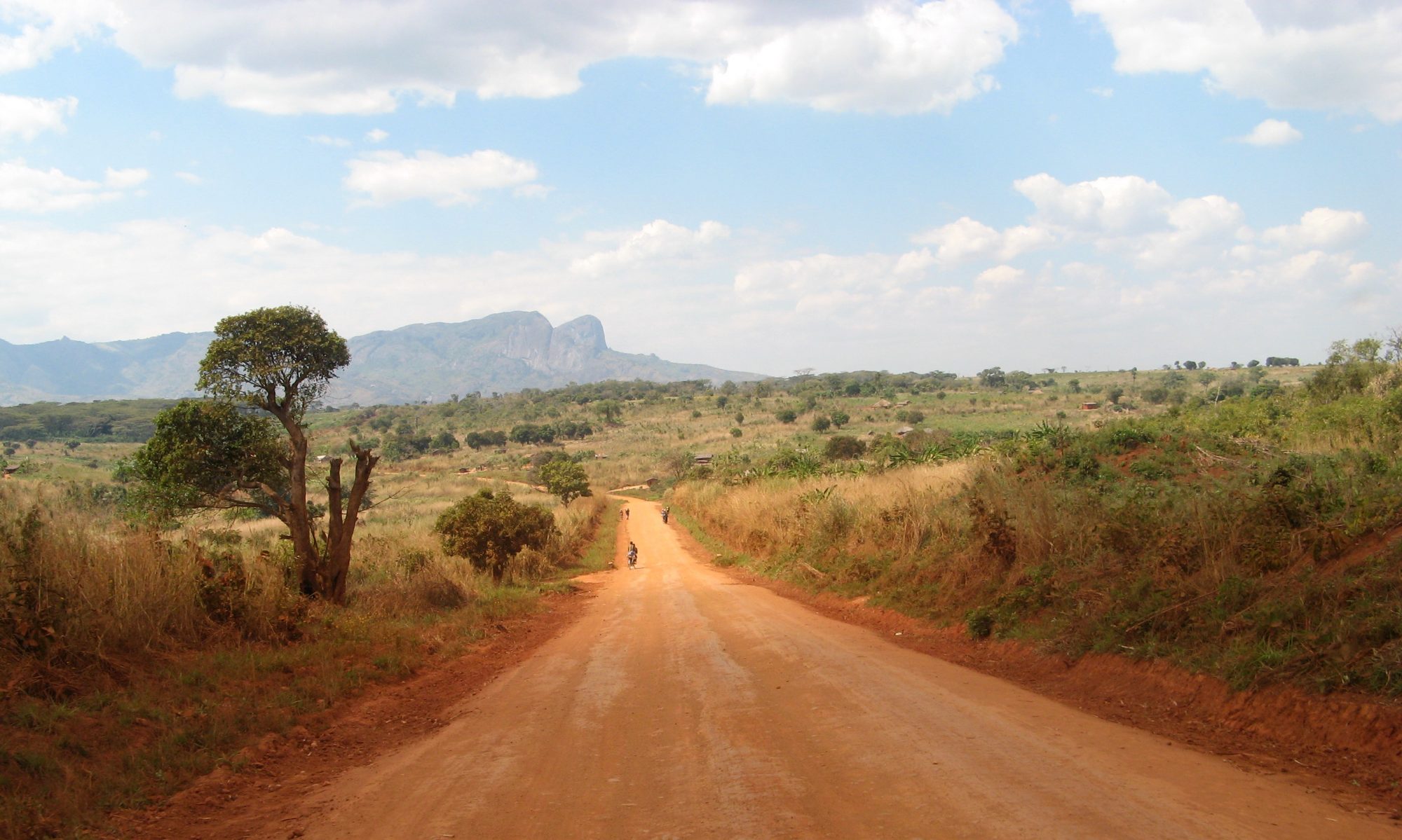- Moisés de Lemos Martins (CECS/UM) (PI)

Full Professor in the University of Minho, Moisés de Lemos Martins is currently the Director of the Communication and Society Research Centre, which contributed to its foundation in 2001. Martins has a PhD in Social Sciences by the University of Strasbourg, in 1984. His research and teaching focuses on social semiotics, sociology of communication and culture and lusophone studies. In terms of scientific publications, he is the director of Comunicação e Sociedadeand Revista Lusófona de Estudos Culturais. He was the President of Sopcom, Lusocom and Confibercom. He also published and edited several books: Crise no Castelo da Cultura (2011); L’imaginaire des médias (with Michel Maffesoli, 2011); Portugal Ilustrado em Postais (with Madalena Oliveira, 2011); Comunicação e Lusofonia (with Helena Sousa and Rosa Cabecinhas, 2006); A Linguagem, a Verdade e o Poder (2002); O Olho de Deus no Discurso Salazarista (1990).
- Rosa Cabecinhas (CECS/UM) (co-PI)
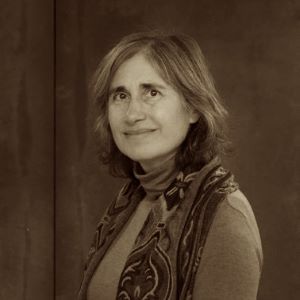 Rosa Cabecinhas is an Associate Professor at the Department of Communication Sciences, Institute of Social Sciences of the University of Minho, and researcher at Communication and Society Research Centre. Currently, she was the director of the Doctoral Program in Cultural Studies. She has developed research of interdisciplinary fields and, integrates several national and international associations in the fields of Communication, Psychology, Education and Cultural Studies. Her main research interests combine the fields of Intercultural Communication, Social Memory, Social Representations, Social Identities, and Social Discrimination. Among her works, the following books stand out: “Preto e Branco: A naturalização da discriminação racial” (2017, 2nd ed.) and, co-authored “Comunicação Intercultural: Perspectivas, Dilemas e Desafios” (2017), “Narratives and Social Memory: Theoretical and Methodological Approaches” (2013) and “De outro género: Propostas para a promoção de um jornalismo mais inclusivo” (2014). Recently co-edited a special issue of the Journal of Communication and Society: “Intercultural Communication and Mediation” (2019) and an issue of the Lusophone Journal of Cultural Studies: “Cinema, migrations and cultural diversity” (2019). ORCID: https://orcid.org/0000-0002-1491-3420 .
Rosa Cabecinhas is an Associate Professor at the Department of Communication Sciences, Institute of Social Sciences of the University of Minho, and researcher at Communication and Society Research Centre. Currently, she was the director of the Doctoral Program in Cultural Studies. She has developed research of interdisciplinary fields and, integrates several national and international associations in the fields of Communication, Psychology, Education and Cultural Studies. Her main research interests combine the fields of Intercultural Communication, Social Memory, Social Representations, Social Identities, and Social Discrimination. Among her works, the following books stand out: “Preto e Branco: A naturalização da discriminação racial” (2017, 2nd ed.) and, co-authored “Comunicação Intercultural: Perspectivas, Dilemas e Desafios” (2017), “Narratives and Social Memory: Theoretical and Methodological Approaches” (2013) and “De outro género: Propostas para a promoção de um jornalismo mais inclusivo” (2014). Recently co-edited a special issue of the Journal of Communication and Society: “Intercultural Communication and Mediation” (2019) and an issue of the Lusophone Journal of Cultural Studies: “Cinema, migrations and cultural diversity” (2019). ORCID: https://orcid.org/0000-0002-1491-3420 .
- Alda Costa (UEM)
Ph.D. in History (History of Art) by the University of Lisbon, is currently Assistant Professor and Director of Culture at Eduardo Mondlane University. Author of books as Arte em Moçambique: Entre a construção da nação e o mundo sem fronteiras (2013) and Arte e Artistas em Moçambique: Diferentes Gerações e Modernidades (2014), she is a member of the research team of the project “Memories, cultures and identities: how the past weights on the present-day intercultural relations in Mozambique and Portugal?”.
- Alice Balbé (CECS/UM)
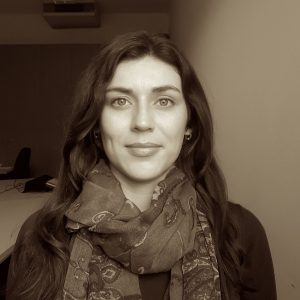
Ph.D. in Communication Sciences from the University of Minho, she also received her Master degree in Communication Sciences in the research area specialization of Information and Journalism from the same university. She is a member of SOPCOM’s Young Researchers Working Group – Portuguese Association of Communication Sciences. Alice is a journalist and her research interests include representations, Lusophony, environmental communication, and digital social networks. Alice is Post-Doctoral Researcher in the project “Memories, cultures and identities: how the past weights on the present-day intercultural relations in Mozambique and Portugal?” at Communication and Society Research Centre (CECS) of the Institute of Social Sciences – University of Minho.
- Ana Cristina Pereira (CECS/UM)
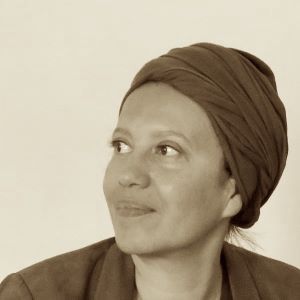 Ana Cristina Pereira holds a Ph.D. in Cultural Studies in the area of Communication and Culture at the University of Minho. Her Ph.D. thesis is entitled Otherness and identity in cinematographic fiction in Portugal and Mozambique, developed at the Center for Studies on Communication and Society (CECS), University of Minho, and financed by FCT – SFRH / BD / 110044/2015. Graduated in Theater Studies from the Superior School of Theater and Cinema of Lisbon and the School of Music and Arts of the Spectacle of Porto and master in Educational Sciences from the University of Aveiro. Her main research interests are postcolonial cinema, social identity, social representations, racism, and cultural memory.
Ana Cristina Pereira holds a Ph.D. in Cultural Studies in the area of Communication and Culture at the University of Minho. Her Ph.D. thesis is entitled Otherness and identity in cinematographic fiction in Portugal and Mozambique, developed at the Center for Studies on Communication and Society (CECS), University of Minho, and financed by FCT – SFRH / BD / 110044/2015. Graduated in Theater Studies from the Superior School of Theater and Cinema of Lisbon and the School of Music and Arts of the Spectacle of Porto and master in Educational Sciences from the University of Aveiro. Her main research interests are postcolonial cinema, social identity, social representations, racism, and cultural memory.
- Armando Armindo (UniZambeze, CECS/UM)
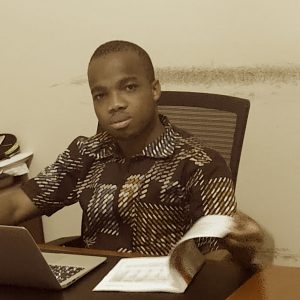
Armindo Armando, born on May 4, 1993, in Pemba City, Cabo-Delgado Province – Mozambique, Ph.D. student in Language, Culture and Society at Zambeze University with a thesis proposal entitled: Cultural Diversity and Challenges of National Unity in Manuals of Teaching History of Mozambique, Master in Political Science and International Relations with a specialty in Conflict Resolution and Diplomacy from the Higher Institute of Science and Technology Alberto Chipande, graduated in Philosophy Teaching with qualifications in Teaching History by the Pedagogical University. He is a researcher at the Center for Communication and Society Studies (CECS) of the Institute of Social Sciences of the University of Minho; University teacher, working at ISCTAC’s Faculty of Economic Sciences; tutor of the Higher Institute of Distance Education Sciences (ISCED) in the Political Science and International Relations Course and in the Distance Education Institute of the Catholic University of Mozambique in the Public Administration Course; he is a collaborating member of the research group on Learning and Organizational Culture in contemporary times: emancipatory dialogic narratives of the National Council for Scientific and Technological Development, CNPq – Brazil. He was a member of the organizing committee of the 1st International Congress of Economics and Management at ISCTAC; He published articles in the magazines REVISE and Revista Científica of ISCTAC, as well as participation in scientific events of national and international dimension.
- Augusto Alberto (Licungo University, CECS/UM)
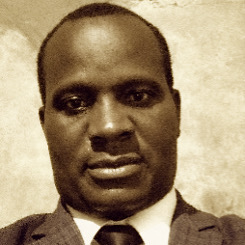
Ph.D. student in Language, Culture and Society at the Zambezi University with the proposal of the thesis entitled: The impact of cinema on the promotion of interculturality – A case study of some Secondary Schools in the City of Beira. Master in Philosophy teaching at the Pedagogical University – Maputo, Degree in Philosophy teaching at the Pedagogical University – Beira. Augusto Alberto is a researcher at the Center for Communication and Society Studies (CECS) of the Institute of Social Sciences at the University of Minho, a professor at the Pedagogical University – Delegation of Beira currently transformed into Licungo University. Dedicated to the Faculty of Letters and Humanity, Department of Social and Philosophical Sciences, Philosophy Course. His areas of interest are Anthropology, Sociology, Ethics, and Epistemology.
- Belchior Canivete (UEM)
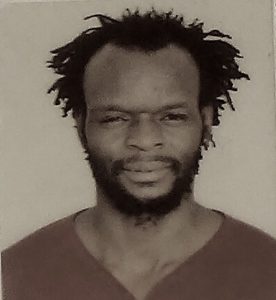
Belchior Canivete is an auxiliary researcher and university lecturer. He did her degree and master in Mozambique (degree in History and MA in Rural Sociology and Development Management from Eduardo Mondlane University) and holds his PhD in Social Sciences in Brazil, from the Rio de Janeiro State University (UERJ) in 2016. In 2019 he was an ESKAS Scholarship Holder at the University of Lausanne, Switzerland. His research focuses on the history and memory of the armed struggle for national liberation, patrimonialisation process and post-colonial transitional justice.
- Cassimo Jamal (Licungo University, CECS/UM)
Cassimo Manuel Jamal was born in Zambezia, Mozambique. Holds a Bachelor in History and Geography Teaching in 2005 and a Master’s Degree in Education – History Teaching by Universidade Pedagógica – Maputo. Ph.D. in Cultural Studies from the University of Minho, in 2019. Lecturer of Africa’s History at Universidade Pedagógica em Quelimane, since 2005, having been currently transformed to Universidade Licungo. He has as research areas local knowledge and cultures; Identities and social representations and post-colonialism.
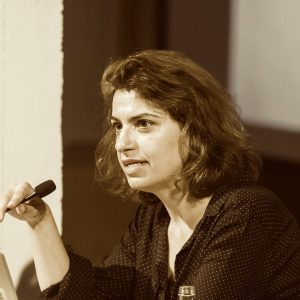 Catarina Simão is an artist and researcher who lives and works between Maputo and Lisbon. Catarina Simão (n.1972) is an artist and researcher, living between Lisbon and Maputo. Since 2009, his work has been presented internationally in art biennials and museums and has also contributed specific content to film festivals, conferences, and academic institutions, both in Europe and Mozambique. She is currently developing a project that historically and critically addresses the presence of Makonde art in image archives in museums or other colonial collections, and she is an associate researcher with the Cultures Past & Present project. The R-Humor exhibition is at Galeria Avenida da Índia, in Lisbon, where it questions the relationship between violence and knowledge (January 26 – April 5 at Galeria Av. da Índia).
Catarina Simão is an artist and researcher who lives and works between Maputo and Lisbon. Catarina Simão (n.1972) is an artist and researcher, living between Lisbon and Maputo. Since 2009, his work has been presented internationally in art biennials and museums and has also contributed specific content to film festivals, conferences, and academic institutions, both in Europe and Mozambique. She is currently developing a project that historically and critically addresses the presence of Makonde art in image archives in museums or other colonial collections, and she is an associate researcher with the Cultures Past & Present project. The R-Humor exhibition is at Galeria Avenida da Índia, in Lisbon, where it questions the relationship between violence and knowledge (January 26 – April 5 at Galeria Av. da Índia).
- Celestino Joanguete (UEM)
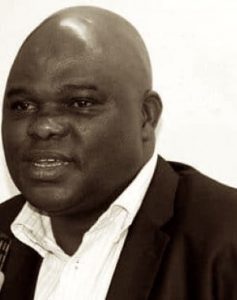 Post-Doctorate in Journalism and Media from the University of Ohio, USA, Ph.D. in Communication Sciences, in University of Minho; Member of Association for Education in Journalism and Mass Communication (AEJMC), USA; Founding Member of the Mozambican Association of Communication and Information Sciences (ACICOM); Member of the Organization for Social Sciences Research in Eastern and Southern Africa (OSSREA), Ethiopia. He is currently a professor and researcher at the Eduardo Mondlane University / School of Communication and Arts and Digital Media Consultant. Blog: http://mediamorfose.blogspot.com/ .
Post-Doctorate in Journalism and Media from the University of Ohio, USA, Ph.D. in Communication Sciences, in University of Minho; Member of Association for Education in Journalism and Mass Communication (AEJMC), USA; Founding Member of the Mozambican Association of Communication and Information Sciences (ACICOM); Member of the Organization for Social Sciences Research in Eastern and Southern Africa (OSSREA), Ethiopia. He is currently a professor and researcher at the Eduardo Mondlane University / School of Communication and Arts and Digital Media Consultant. Blog: http://mediamorfose.blogspot.com/ .
- Edson Mugabe (UEM)
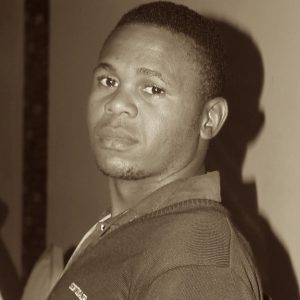
Edson Mugabe is graduated in Anthropology by the Eduardo Mondlane University (2012). He also holds a MSc in Social Anthropology from the Eduardo Mondlane University (2018). His trajectory includes research on culture, reproductive and sexual health with special focus on reproductive technologies, sexuality and gender analysis.
- Elaine Trindade (CECS/UM)
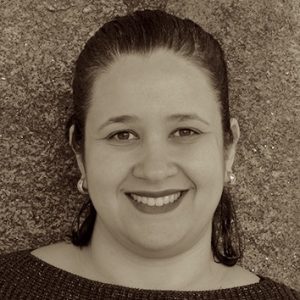
Elaine Trindade is a Ph.D. candidate in Communication Sciences at the University of Minho. She holds a Master’s degree in Communication and Culture from the Federal University of Rio de Janeiro (UFRJ). She holds a (master) scholarship under the project “Memories, cultures and identities: how the past weights on the present-day intercultural relations in Mozambique and Portugal?”, at the Center for Communication and Society Studies (CECS) of the Institute of Social Sciences, at the University of Minho, and a member of the Virtual Museum of Lusophony. Elaine develops research in the area of communication and culture with a particular interest in issues of Portuguese speaking, contemporary photography, new communication technologies, images by mobile devices, Google Street View, Google Earth, and Google Arts and Culture.
- Eliseu Mabasso (UEM)
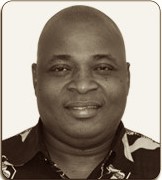
Ph.D. (2010) in Applied Linguistics (Forensic Linguistics) from Eduardo Mondlane University (UEM), Masters (2002) in Letters from The University of Sydney – Australia and graduated (1999) from UEM. He is currently an Assistant Professor at the Department of Languages of the Faculty of Arts and Social Sciences (FLCS), at UEM.
- Filimone Meigos (ISARC)
Ph.D. in Sociology of Art from the University of Beira Interior (2018) and Director General of the ISARC Instituto Superior de Artes e Cultura, Higher Institute of Arts and Culture in Mozambique.
- Isabel Macedo (CECS/UM)
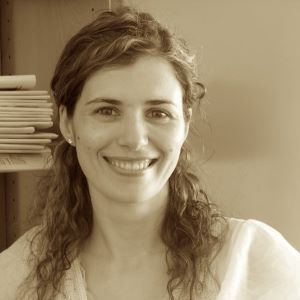 Isabel Macedo holds a Ph.D. in Cultural Studies in the area of Communication and Culture at the University of Minho. She has graduated and a master’s degree in Educational Sciences. Her Ph.D. thesis is entitled “Migrations, Cultural Memory and Identity Representations: Film Literacy in the Promotion of Intercultural Dialogue”. She is a researcher at the Communication and Society Research Centre. She has published several articles in national and international journals. She co-edited the Journals Comunicação e Sociedade, 34, dedicated to “Communication Sciences and Lusophone Studies”, and the Vista – Journal of Visual Culture, 2, entitled “Cultural memory, Image, Archive”. Some of her main works are: “Representations of Dictatorship in Portuguese Cinema” (2017), in co-authorship; “Interwoven migration narratives: identity and social representations in the Lusophone world” (2016), in co-authorship, and “Young people and the Portuguese cinema: the (des)colonization of the imaginary?” (2016).
Isabel Macedo holds a Ph.D. in Cultural Studies in the area of Communication and Culture at the University of Minho. She has graduated and a master’s degree in Educational Sciences. Her Ph.D. thesis is entitled “Migrations, Cultural Memory and Identity Representations: Film Literacy in the Promotion of Intercultural Dialogue”. She is a researcher at the Communication and Society Research Centre. She has published several articles in national and international journals. She co-edited the Journals Comunicação e Sociedade, 34, dedicated to “Communication Sciences and Lusophone Studies”, and the Vista – Journal of Visual Culture, 2, entitled “Cultural memory, Image, Archive”. Some of her main works are: “Representations of Dictatorship in Portuguese Cinema” (2017), in co-authorship; “Interwoven migration narratives: identity and social representations in the Lusophone world” (2016), in co-authorship, and “Young people and the Portuguese cinema: the (des)colonization of the imaginary?” (2016).
- João Feijó (ISM)
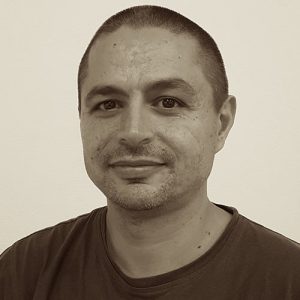
Assistant professor at the Instituto Superior Monitor (ISM). Assistant researcher and coordinator of the Technical Council of the Observatory of Rural Environment (OMR). Ph.D. in African Studies by Instituto Superior de Ciências do Trabalho e da Empresa (ISCTE – University Institute of Lisbon), in 2014. Current research areas: poverty, inequalities and conflicts. Master in Intercultural Relations from the Universidade Aberta (2006). Degree in Sociology of Work and Organizations from the University of Minho (1998).
- João Sarmento (CECS/UM)
 João Sarmento is a geographer, Assistant Professor with aggregation in the Department of Geography of the University of Minho since 1999. He defended his Ph.D. in Geography by University College Cork, Ireland (2001) and the aggregation at the University of Lisbon (2014). He has extensively published in the fields of Cultural Geography, Postcolonial Studies, Tourism Studies, Urban Studies and Geographical Thought. His research focuses on Portugal, Africa, the Middle East and Central Asia. His most recent publications are “The Colonial Hotel: Spacing Violence at the Large Hotel of Beira, Mozambique” (2019, Environment and Planning D: Society and Space) and “Portuguese Tropical Geography and Decolonization in Africa: the Case of Mozambique” (2018, Journal of Historical Geography). In 2019 he defended the final research work at the National Defense Institute entitled “International Electoral Observation and the consolidation of democracy: the role of the European Union and Portugal in Africa and Mozambique”.
João Sarmento is a geographer, Assistant Professor with aggregation in the Department of Geography of the University of Minho since 1999. He defended his Ph.D. in Geography by University College Cork, Ireland (2001) and the aggregation at the University of Lisbon (2014). He has extensively published in the fields of Cultural Geography, Postcolonial Studies, Tourism Studies, Urban Studies and Geographical Thought. His research focuses on Portugal, Africa, the Middle East and Central Asia. His most recent publications are “The Colonial Hotel: Spacing Violence at the Large Hotel of Beira, Mozambique” (2019, Environment and Planning D: Society and Space) and “Portuguese Tropical Geography and Decolonization in Africa: the Case of Mozambique” (2018, Journal of Historical Geography). In 2019 he defended the final research work at the National Defense Institute entitled “International Electoral Observation and the consolidation of democracy: the role of the European Union and Portugal in Africa and Mozambique”.
- José Carlos Venâncio (University of Beira Interior and CECS/UM)
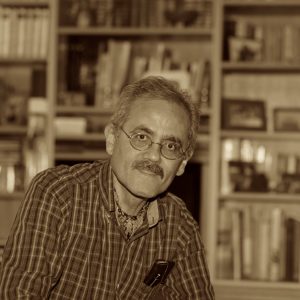
José Carlos Venâncio is a Full Professor at the University of Beira Interior and a researcher at the Center for the Study of Communication and Society at the University of Minho. Visiting Professor of the University Agostinho Neto / Luanda (Faculty of Social Sciences). He is a member of the editorial advisory board of some Social Science journals and a Fellow of the International Academy of Portuguese Culture. He has published several works on Portuguese-speaking Africa, Macao and on Brazil. From these works, the following books are to be highlighted: Literatura e poder na África lusófona (Lisbon: ICALP 1992), A economia de Luanda e hinterland no século XVIII. Um estudo de Sociologia Histórica (Lisbon: Estampa 1996), Colonialismo, antropologia e lusofonias. Repensando a presença portuguesa nos trópicos (Lisbon: Vega 1996), O facto africano. Elementos para uma Sociologia de África (Lisbon: Vega 2000); Brasilian edition: O fato africano. Elementos para uma Sociologia da África (Recife: Fundação Joaquim Nabuco / Massangana 2009) and A dominação colonial. Protagonismos e heranças (Lisbon: Estampa 2005). In co-ordination with Adriano Moreira, he published the book Luso-tropicalismo. Uma teoria social em questão (Lisbon: Vega 2000), which received the Gilberto Freyre Award from the Fundação Oriente. He has also published in national and foreign indexed journals and in several books such as Comunidade dos Países de Língua Portuguesa. Cooperação (Coimbra: Almedina 2001) e Terrorismo (Coimbra: Almedina 2004), both edited by Adriano Moreira, Ensaios lusófonos (Coimbra: Almedina 2012), edited by Fernando Cristóvão, Lusofonia e interculturalidade. Promessa e Travessia (University of Minho / Húmus 2015), edited by Moisés de Lemos Martins and Sociedade em debate (University of Beira Interior / Húmus 2016), edited by Nuno Miguel Augusto.
- Luís Camanho (ID+/UP, CECS/UM)
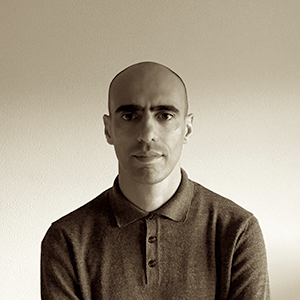
Associate researcher in the project Cultures Past & Present at CECS, the Communication and Society Research Centre of Institute of Social Sciences of the University of Minho. Enrolled in the Doctoral Programme in Design of Fine Arts School of University of Porto linked with the unit ID+, Research Institute for Design, Media and Culture. Works in the fields of Graphic and Editorial Design, Theory and History of Photography, Image and Narrative, Visual Culture and Running Culture.
- Luís Cunha (CRIA/UM)
PhD in Anthropology, by the University of Minho, in 2003, Luís Cunha is a Lecturer and Director of the Sociology Department in the UM. As his studies focuses on social and national identities, frontiers and lusophony, he is also interested in social memories, particularly in a context of multiple crisis, financial, political and social. He is a member of the research centre CRIA. Luís Cunha has recently been awarded with the Manuel da Fonseca National Prize, with his book “Vinte Mil Léguas de Palavras”.
- Lurdes Macedo (CECS/UM)
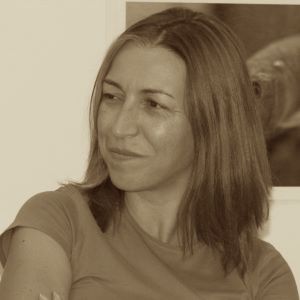 Lurdes Macedo awarded her Ph.D. in Communication Sciences at University of Minho (Portugal). She was a research team member of the “Identity narratives and social memory: the (re)making of lusophone in intercultural contexts” project, finished in September 2013. Nowadays, she is researching Intercultural Communication and on Communication for Development (C4D) supported by an FCT grant. She was Lusophone Communication International Yearbook (2010 and 2011) and Lusophonie Interfaces (2014) co-editor. She published more than 20 papers in national and international scientific journals as the first author and as a co-author. She has been also an occasional collaborator of several publications in the field of culture in Portugal and Brazil. She was a member of the organizing committee and/or scientific committee of several international congresses. She is an assistant professor at the Lusófona University of Porto, where she has been teaching since 2008. She was an assistant professor at the University Politécnica of Maputo in 2016, while she was spending seven months in Mozambique doing research work. The relationship with Mozambique has been developing up to now, especially with the direction and dissemination of the documentary C4D “On the Trail of Malangatana: from the legacy to memory” and with the co-coordination of the Cycle “Intercultural Communication Flows within the Portuguese Language space: debating mutual ignorance in the context of the global era”, which is running its fourth edition. E-mail: mlmacedo71@gmail.com
Lurdes Macedo awarded her Ph.D. in Communication Sciences at University of Minho (Portugal). She was a research team member of the “Identity narratives and social memory: the (re)making of lusophone in intercultural contexts” project, finished in September 2013. Nowadays, she is researching Intercultural Communication and on Communication for Development (C4D) supported by an FCT grant. She was Lusophone Communication International Yearbook (2010 and 2011) and Lusophonie Interfaces (2014) co-editor. She published more than 20 papers in national and international scientific journals as the first author and as a co-author. She has been also an occasional collaborator of several publications in the field of culture in Portugal and Brazil. She was a member of the organizing committee and/or scientific committee of several international congresses. She is an assistant professor at the Lusófona University of Porto, where she has been teaching since 2008. She was an assistant professor at the University Politécnica of Maputo in 2016, while she was spending seven months in Mozambique doing research work. The relationship with Mozambique has been developing up to now, especially with the direction and dissemination of the documentary C4D “On the Trail of Malangatana: from the legacy to memory” and with the co-coordination of the Cycle “Intercultural Communication Flows within the Portuguese Language space: debating mutual ignorance in the context of the global era”, which is running its fourth edition. E-mail: mlmacedo71@gmail.com
- Maria do Carmo Piçarra (CECS/UM)
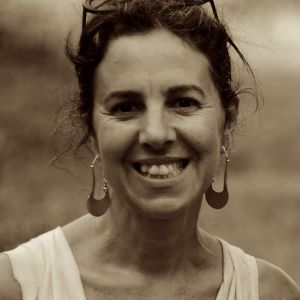 Maria do Carmo Piçarra is a lecturer at the Autonomous University of Lisbon, a researcher at ICNova and she is fellowship from Fundação Oriente (2018-2019) to study “Cinema Imperio” about the representations of “Portuguese Asia” in the Film Archives. She has a doctorate in Communication Sciences and has developed the postdoctoral research “‘Cinema Império’. Portugal, França e Inglaterra, representações do império no cinema” (2013-2018). She is a film programmer, and co-founded of ANIKI – Portuguese Magazine of Image in Motion and was deputy director of the Institute of Cinema, Audiovisual and Multimedia (1998-1999). She published, among other titles and articles in scientific magazines: “Azuis ultramarinos. Propaganda colonial e censura no cinema do Estado Novo” (2015), “Salazar vai ao cinema I e II” (2006, 2011). With Jorge António co-edited the Angola, o nascimento de uma nação (2013, 2014, 2015). With Teresa Castro co-edited the book (Re)Imagining African Independence. Film, Visual Arts and the Fall of the Portuguese Empire (2017).
Maria do Carmo Piçarra is a lecturer at the Autonomous University of Lisbon, a researcher at ICNova and she is fellowship from Fundação Oriente (2018-2019) to study “Cinema Imperio” about the representations of “Portuguese Asia” in the Film Archives. She has a doctorate in Communication Sciences and has developed the postdoctoral research “‘Cinema Império’. Portugal, França e Inglaterra, representações do império no cinema” (2013-2018). She is a film programmer, and co-founded of ANIKI – Portuguese Magazine of Image in Motion and was deputy director of the Institute of Cinema, Audiovisual and Multimedia (1998-1999). She published, among other titles and articles in scientific magazines: “Azuis ultramarinos. Propaganda colonial e censura no cinema do Estado Novo” (2015), “Salazar vai ao cinema I e II” (2006, 2011). With Jorge António co-edited the Angola, o nascimento de uma nação (2013, 2014, 2015). With Teresa Castro co-edited the book (Re)Imagining African Independence. Film, Visual Arts and the Fall of the Portuguese Empire (2017).
- Martins Mapera (UniZambeze)
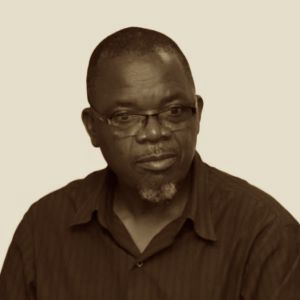 Dean of the Faculty of Social Sciences and Humanities of UniZambeze, since 2015. Researcher of the Aga Khan Project denominated virtual museum of Lusophone, organized by the CECS of the University of Minho. Researcher of the FCT / Aga Khan project “Memories, cultures and identities: how the past weights on the present-day intercultural relations in Mozambique and Portugal?” Based at CECS, University of Minho and Eduardo Mondlane University (Mozambique). PhD in Cultural Studies, University of Aveiro / Minho, in 2014. Member of the Editorial Board of Editora Pangeia, UFMGS – Brazil. Professor of “Sociology of Culture”, in the Doctorate Programs in Culture and Society Language “Faculty of Social Sciences and Humanities of UniZambeze. Author of the Curricular Project of Doctorate Programs in Language, Culture and Society, Faculty of Social Sciences and Humanities, UniZambeze. Professor of “Interactions and Discursive Practices”, in the Doctorate Program in Language Sciences Applied to Teaching Languages, Universidade Pedagógica de Maputo, 2015. Professor of Cultural Studies, at the Higher Institute of Arts and Cultures, 2014. Participated in the “International Congress for the Seas of the Portuguese Language”, and member of the scientific committee and author of the text “Laugh together is a hug by the seas of the Portuguese language”, held by the University of Aveiro, 2018. Author of articles published by Form Breve, University of Aveiro, which stands out: «The silence of fear in “The dream of Alima” by Lília Momplé», in 2014; «The Silence of Fear in “The Dream of Alima “, by Lília Momplé», published in 2014; “Dog Ashes: Realism agony of Louis Bernardo Honwana” in 2018; “Realism and lyricism in Terra Sonâmbula, by Mia Couto, and Chuva Braba, by Manuel Lopes”, published in 2014 e; “Deserters of memories in the novel Jesusalém, by Mia Couto”, in 2014. Author of the book Cinzas de Cão – Critical essays on literature, by Fundza Publishing House (2018) and Open poem and the screen of diversity (2017) both published by Fundza Publishing House. In 2015 he published Realism and lyricism on the land of Mia Couto and Chuva Braba by Manuel Lopes, by Circles of Mozambican writers in the diaspora. Professor of Higher Education, Scientific and Pedagogical Director of Mussa Bin Bique University, Inhambane delegation, since 2006. Director of the Pre-University School Emília Daússe de Inhambane, from 2003 to 2010.
Dean of the Faculty of Social Sciences and Humanities of UniZambeze, since 2015. Researcher of the Aga Khan Project denominated virtual museum of Lusophone, organized by the CECS of the University of Minho. Researcher of the FCT / Aga Khan project “Memories, cultures and identities: how the past weights on the present-day intercultural relations in Mozambique and Portugal?” Based at CECS, University of Minho and Eduardo Mondlane University (Mozambique). PhD in Cultural Studies, University of Aveiro / Minho, in 2014. Member of the Editorial Board of Editora Pangeia, UFMGS – Brazil. Professor of “Sociology of Culture”, in the Doctorate Programs in Culture and Society Language “Faculty of Social Sciences and Humanities of UniZambeze. Author of the Curricular Project of Doctorate Programs in Language, Culture and Society, Faculty of Social Sciences and Humanities, UniZambeze. Professor of “Interactions and Discursive Practices”, in the Doctorate Program in Language Sciences Applied to Teaching Languages, Universidade Pedagógica de Maputo, 2015. Professor of Cultural Studies, at the Higher Institute of Arts and Cultures, 2014. Participated in the “International Congress for the Seas of the Portuguese Language”, and member of the scientific committee and author of the text “Laugh together is a hug by the seas of the Portuguese language”, held by the University of Aveiro, 2018. Author of articles published by Form Breve, University of Aveiro, which stands out: «The silence of fear in “The dream of Alima” by Lília Momplé», in 2014; «The Silence of Fear in “The Dream of Alima “, by Lília Momplé», published in 2014; “Dog Ashes: Realism agony of Louis Bernardo Honwana” in 2018; “Realism and lyricism in Terra Sonâmbula, by Mia Couto, and Chuva Braba, by Manuel Lopes”, published in 2014 e; “Deserters of memories in the novel Jesusalém, by Mia Couto”, in 2014. Author of the book Cinzas de Cão – Critical essays on literature, by Fundza Publishing House (2018) and Open poem and the screen of diversity (2017) both published by Fundza Publishing House. In 2015 he published Realism and lyricism on the land of Mia Couto and Chuva Braba by Manuel Lopes, by Circles of Mozambican writers in the diaspora. Professor of Higher Education, Scientific and Pedagogical Director of Mussa Bin Bique University, Inhambane delegation, since 2006. Director of the Pre-University School Emília Daússe de Inhambane, from 2003 to 2010.
- Ouri Pota (ISARC)
Ouri Pota holds a master’s degree in Communication Sciences, specialization in Information and Journalism from the University of Minho, Portugal. He has developed a dissertation entitled “The television system in Mozambique: a contribution to the analysis of Audiovisual Lusophone space”. He is a journalist at Radio Mozambique. Simultaneously he writes in the blog “Mozambique Hands“.
- Rosânia Silva (UPM)
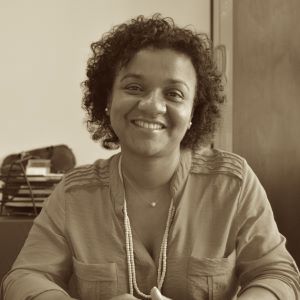 Rosânia da Silva has a degree in Literature by Fundação Educacional Nordeste Mineiro – FENORD, Minas Gerais, Brazil; Master’s Degree in Portuguese Language Literature, with specialization in African Literature of Portuguese Language, by Pontifícia Universidade Católica de Minas Gerais – PUC-MG, Brazil; and PhD in African Literature of Portuguese Language, by University Nova de Lisboa, Portugal, with the thesis “Paths of Mozambican Literary Narrative: Between History and Fiction”, which focuses on the analysis of the Mozambican literary narrative from the works of Mia Couto, Ungulani ba ka Kossa and Orlando Mendes. In 1995 she emigrated to Mozambique and in 1996 joined the team involved in the ISPU project, now Polytechnic University, and actively contributed to the Institution’s growth. In the scope of university management, she has held various positions at the Polytechnic University, notably as Executive Director of the University, Director of the University Extension Unit – UEU, Director of the Higher Studies and Business School – ESAEN, among others. She is Associate Professor and since 1998 she teaches Semiotics in the degree in Communication Sciences. She is currently Pro-Rector for the Postgraduate, Scientific Research, University Extension and Cooperation – PROPPEC, position that she holds in conjunction with the Executive Director of the University Foundation for the Development of Education – FUNDE. FUNDE has developed and managed projects in the areas of Community Support, Research, Innovation, Education, Culture and Citizenship. Rosânia teaches and researches African and oral literature, social development, cooperation, and semiotics. She has several papers published in scientific research journals.
Rosânia da Silva has a degree in Literature by Fundação Educacional Nordeste Mineiro – FENORD, Minas Gerais, Brazil; Master’s Degree in Portuguese Language Literature, with specialization in African Literature of Portuguese Language, by Pontifícia Universidade Católica de Minas Gerais – PUC-MG, Brazil; and PhD in African Literature of Portuguese Language, by University Nova de Lisboa, Portugal, with the thesis “Paths of Mozambican Literary Narrative: Between History and Fiction”, which focuses on the analysis of the Mozambican literary narrative from the works of Mia Couto, Ungulani ba ka Kossa and Orlando Mendes. In 1995 she emigrated to Mozambique and in 1996 joined the team involved in the ISPU project, now Polytechnic University, and actively contributed to the Institution’s growth. In the scope of university management, she has held various positions at the Polytechnic University, notably as Executive Director of the University, Director of the University Extension Unit – UEU, Director of the Higher Studies and Business School – ESAEN, among others. She is Associate Professor and since 1998 she teaches Semiotics in the degree in Communication Sciences. She is currently Pro-Rector for the Postgraduate, Scientific Research, University Extension and Cooperation – PROPPEC, position that she holds in conjunction with the Executive Director of the University Foundation for the Development of Education – FUNDE. FUNDE has developed and managed projects in the areas of Community Support, Research, Innovation, Education, Culture and Citizenship. Rosânia teaches and researches African and oral literature, social development, cooperation, and semiotics. She has several papers published in scientific research journals.
- Sheila Khan (CECS/UM)

Sheila Khan is a sociologist, researcher at the Centre for Communication and Society Studies and is currently a postdoc researcher in the EXCHANGE project. She holds a Ph.D. in Ethnic and Cultural Studies, from the University of Warwick. Her main research topics are: post-colonial studies, with focus on the relations between Mozambique and Portugal, including the question of Mozambican immigrants in Portugal; Mozambican and Portuguese contemporary history and literature; narrative of life and identity from the global South; memory and post-memory authorities. Her most recent book is titled Portugal a Lápis de Cor. A Sul de uma pós-colonialidade (Almedina, 2015).
- Tiago Vieira (CECS/UM)

Tiago Vieira da Silva currently attends the Ph.D. program in Communication Sciences at the University of Minho, with the project “The debate of the national identity from the revolution of April to the present, through Portuguese cinema”, supervised by Professor Moisés Lemos Martins (CECS) and Professor Nelson Araújo (CEAA), under a Ph.D. scholarship from the Foundation for Science and Technology (FCT). His main research interests are Film Studies, Social Representations, Social Identities, Intercultural Communication, Lusophone Studies, as well as Literary Studies. Among his publications is, for example, “The revisiting of the landscape in the feature films of Manuel Guimarães”.
- Tomas Jane (ESJ)
PhD in Social Communication from the Methodist University of São Paulo (2006); Master in Social Communication, by the Methodist University of São Paulo, (1990); Degree in Social Communication, Journalism Area, Instituto Metodista de Ensino Superior de São Bernardo do Campo – SP (1986). General Director and Associate Professor at the School of Journalism and chairs the Mozambican Association of Information and Communication Sciences.
- Vítor Sousa (CECS/UM)
 Vítor de Sousa has a Ph.D. in Communication Sciences (Intercultural Communication), by the University of Minho, with the thesis: “Da ‘portugalidade’ à lusofonia” [From ‘Portugality’ to Lusophony], he has a Master’s Degree (specialised in Media Education) and a Bachelor’s Degree (specialised in Information and Journalism) in the same area. Among his research areas are questions surrounding national identity, Cultural Studies, Media Education and Journalism theories. He is a researcher at CECS (Communication and Society Research Centre), where he integrates the Group of Cultural Studies, is a member of the project: CulturesPast&Present – “Memories, cultures and identities: how the past weights on the present-day intercultural relations in Mozambique and Portugal?” (FCT/Aga Khan) and Museu Virtual da Lusofonia. He is a member of Sopcom, ECREA and Associação dos Amigos da Biblioteca Municipal de Penafiel. He won the Mário Quartim Graça 2016 Scientific Award, which distinguishes the best doctoral thesis in the last three years in the area of Social Sciences and Humanities, in Portugal and in Latin America. He was a journalist (1986-1997) and a press officer (1997-2005).
Vítor de Sousa has a Ph.D. in Communication Sciences (Intercultural Communication), by the University of Minho, with the thesis: “Da ‘portugalidade’ à lusofonia” [From ‘Portugality’ to Lusophony], he has a Master’s Degree (specialised in Media Education) and a Bachelor’s Degree (specialised in Information and Journalism) in the same area. Among his research areas are questions surrounding national identity, Cultural Studies, Media Education and Journalism theories. He is a researcher at CECS (Communication and Society Research Centre), where he integrates the Group of Cultural Studies, is a member of the project: CulturesPast&Present – “Memories, cultures and identities: how the past weights on the present-day intercultural relations in Mozambique and Portugal?” (FCT/Aga Khan) and Museu Virtual da Lusofonia. He is a member of Sopcom, ECREA and Associação dos Amigos da Biblioteca Municipal de Penafiel. He won the Mário Quartim Graça 2016 Scientific Award, which distinguishes the best doctoral thesis in the last three years in the area of Social Sciences and Humanities, in Portugal and in Latin America. He was a journalist (1986-1997) and a press officer (1997-2005).
